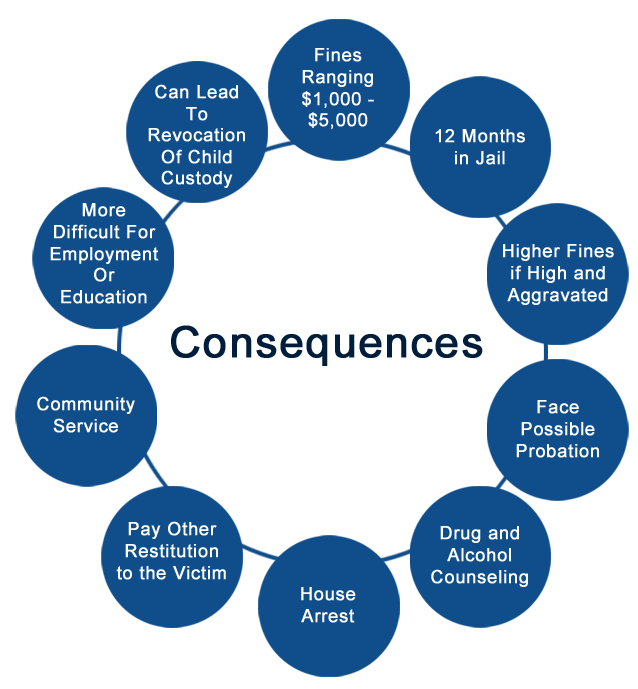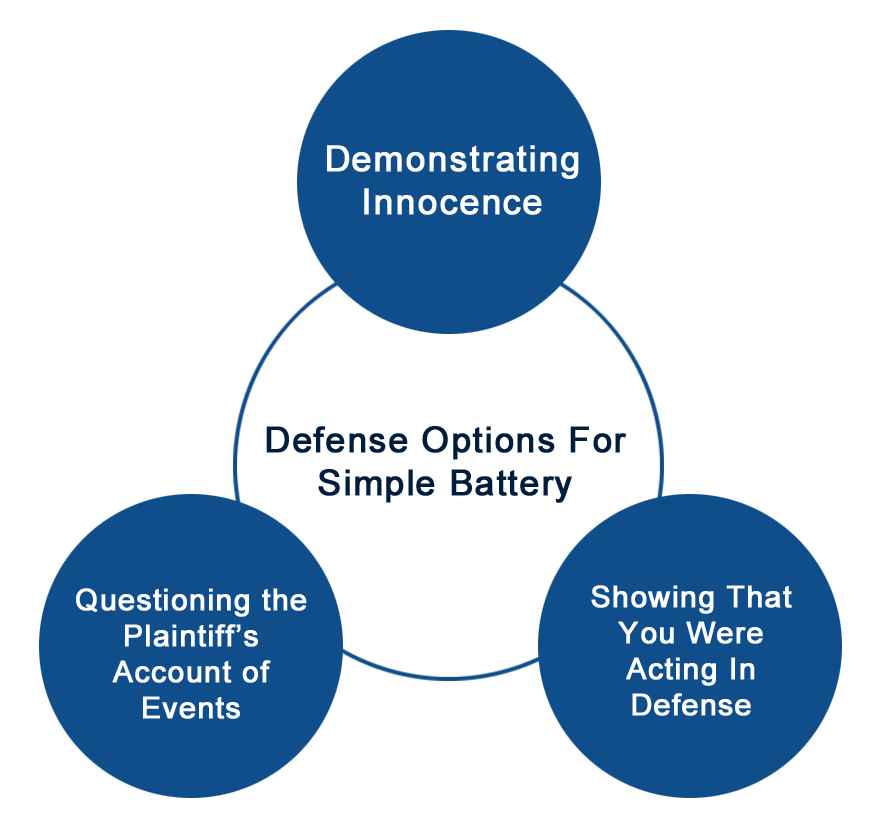
Simple Battery in Georgia
In the state of Georgia, as elsewhere, the legal term “battery” applies to several different offenses. While these cover a fairly broad range, the umbrella term battery generally refers to any unauthorized use of physical force against someone else, ranging from injurious actions to simple touching.
The section of Georgia code which defines battery, does so by stating that someone has committed simple battery when he or she, “ (1) Intentionally makes physical contact of an insulting or provoking nature with the person of another; or (2) Intentionally causes physical harm to another.”
Beyond simple battery, the law allows for further classification, namely battery and aggravated battery.
The distinction between simple battery and battery comes down to visible damage. As an example, if two people were to engage in a physical fight, any instance of pushing, striking or slapping would constitute simple battery. If that contact leaves a visible mark – a split lip, a black eye, a bruise – it could be considered battery.
The highest classification, aggravated battery, comes when the physical actions of one person deprive another person of full use of their body. Permanent injury, dismemberment or disfiguration will all qualify someone to be prosecuted for aggravated battery. And while simple battery and battery are both considered misdemeanors, aggravated battery is considered a felony.

What are the consequences of a simple battery conviction?
As a misdemeanor, simple battery carries potential consequences that include a jail term of up to 12 months as well as fines that can run from $1,000 to $5,000. The wide range of fines is determined by whether or not the conviction is considered, “a high and aggravated misdemeanor.” If the victim of the battery is a child, elderly, a spouse or family member, a pregnant woman or a law enforcement or other government official, the state will likely pursue high and aggravated misdemeanor charges, resulting in higher fines and restitution paid to the victim.
But that is just the beginning. In addition to fines and sentencing, you can expect to face possible probation, drug and alcohol counseling, house arrest, community service or a restraining order. You may also have your second amendment rights denied, depending on the nature of your conviction.
But that’s not all. If convicted, from that point on your record will carry a mark of your criminal record. This could make it difficult to get a job, secure a loan, attend school or enjoy child custody. This record will also be visible to any licensing boards that may control your ability to work in your chosen field.
It’s important to note that the statute of limitations in Georgia is two years for a simple battery charge. And once the charge is filed, it cannot be dropped or recanted.

What options are there to defend against simple battery charges?
Proving simple battery means the prosecution need only show a judge or jury that there was some kind of physical contact made, that the victim did not give their permission, and that the defendant had intention to harm. But there are many ways to introduce doubt, as many cases of simple assault are simply a situation that was misunderstood and got out of hand. Some options include:
- Demonstrating innocence: Through witness testimony or a verifiable alibi, or through demonstrating that this was a case of mistaken identity, you can show that you are not guilty of this crime.
- Showing that you were acting in defense: This can cover a range of things, whether you were acting in defense against violence to yourself, in defense of other or in defense of property.
- Questioning the plaintiff’s account of events: This could include showing that there is a lack of concrete evidence, or introducing video, audio or witness evidence that conflicts with their account. It could also include questioning what motive they would have to file charges, or if they have a history of false accusations.
The first step in pursuing these options is to contact the right attorney.

How is the Claiborne Firm different?
At the Claiborne Firm, we know that intense preparation always yields the best results. As soon as you secure the services of our attorneys, we launch a thorough investigation into every minute detail of the case against you. Combing through video and audio footage, gathering witness testimony and vetting every word of police reports and court documents gives us a better understanding of the case than the prosecution. Armed with that understanding, we build a defense that has resulted in reduced or dismissed charges for countless clients.
Take a look at our track record, read through the record of our case wins and you’ll see what a difference this preparation makes. Then, take back control of your life by contacting us today to schedule your free, confidential, no-obligation evaluation of your case.
Call (912) 351-8775 or Schedule a Free Case Evaluation Online
